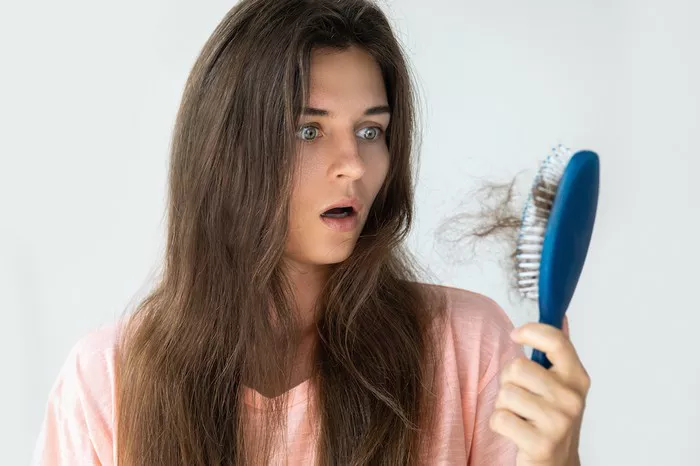In the modern world, stress has become an almost ubiquitous presence, affecting individuals from all walks of life. Whether it’s due to work pressures, personal relationships, financial worries, or health concerns, stress can manifest itself in various ways, one of which is hair loss. While it’s natural to lose some hair daily, excessive shedding can be alarming and often attributed to stress-induced factors. Understanding the link between stress and hair loss is crucial in formulating effective strategies to manage and potentially reverse this condition.
The Physiology of Stress-Induced Hair Loss
To comprehend how stress contributes to hair loss, it’s essential to delve into the physiological mechanisms at play. The body’s response to stress involves the release of hormones such as cortisol and adrenaline, which trigger the “fight or flight” response. While this response is beneficial in short bursts, chronic stress can lead to prolonged elevation of cortisol levels, disrupting the normal functioning of the body.
One of the consequences of chronic stress is the disruption of the hair growth cycle. The hair growth cycle consists of three phases: anagen (growth phase), catagen (transitional phase), and telogen (resting phase). Under normal circumstances, the majority of hair follicles are in the anagen phase, ensuring continuous hair growth. However, stress can induce a shift in this cycle, causing a larger proportion of follicles to enter the telogen phase prematurely. This phenomenon, known as telogen effluvium, results in increased shedding of hair and noticeable thinning over time.
Moreover, stress can also exacerbate existing hair loss conditions such as alopecia areata, an autoimmune disorder characterized by patchy hair loss. The immune system’s response to stress may trigger inflammatory pathways, leading to the attack of hair follicles in susceptible individuals.
Identifying Stress-Related Hair Loss
Recognizing the signs of stress-related hair loss is the first step towards addressing the issue effectively. While it’s normal to lose around 50-100 hairs per day, excessive shedding accompanied by other symptoms may indicate a more significant problem. Some common signs of stress-induced hair loss include:
1. Increased hair shedding during periods of high stress
2. Thinning of hair, particularly at the crown or temples
3. Noticeable hair loss in patches or diffuse thinning across the scalp
4. Changes in hair texture or quality, such as increased brittleness or lack of luster
It’s important to differentiate stress-related hair loss from other forms of alopecia, such as androgenetic alopecia (male or female pattern baldness) or alopecia areata. Consulting a dermatologist or trichologist for a proper diagnosis is crucial in developing an appropriate treatment plan.
Strategies for Managing Stress-Induced Hair Loss
While it may seem daunting, managing stress-induced hair loss is achievable with the right approach. By addressing the underlying stressors and implementing lifestyle modifications, individuals can mitigate the effects of stress on their hair health. Here are some strategies to consider:
1. Stress Management Techniques: Engaging in stress-reducing activities such as meditation, yoga, deep breathing exercises, or mindfulness can help regulate cortisol levels and promote relaxation. Regular exercise is also beneficial for reducing stress and improving overall well-being.
2. Healthy Diet and Nutrition: A balanced diet rich in essential nutrients such as vitamins, minerals, and proteins is essential for maintaining healthy hair growth. Incorporating foods high in omega-3 fatty acids, antioxidants, and biotin can support hair health. Additionally, staying hydrated by drinking an adequate amount of water is crucial for optimal hair growth.
3. Quality Sleep: Prioritizing quality sleep is paramount for managing stress and supporting hair growth. Aim for 7-9 hours of uninterrupted sleep each night, and establish a bedtime routine to promote relaxation. Avoiding caffeine and electronic devices before bedtime can help improve sleep quality.
4. Regular Scalp Care: Keeping the scalp clean and healthy is essential for promoting optimal hair growth. Use a gentle shampoo and conditioner suitable for your hair type, and avoid excessive heat styling or harsh chemical treatments that can damage the hair follicles. Scalp massages can also improve blood circulation and promote hair growth.
5. Seeking Professional Help: If stress-related hair loss persists despite lifestyle modifications, consulting a healthcare professional is recommended. Dermatologists or trichologists can assess the underlying causes of hair loss and prescribe medications or treatments tailored to individual needs. In some cases, therapies such as topical minoxidil or low-level laser therapy may be beneficial in stimulating hair regrowth.
6. Psychotherapy or Counseling: For individuals experiencing chronic stress or underlying emotional issues contributing to hair loss, seeking psychotherapy or counseling can provide valuable support. Therapists can help individuals develop coping strategies, address underlying psychological factors, and improve overall resilience to stress.
Conclusion
Hair loss caused by stress can be a distressing experience, but it’s essential to remember that it’s often reversible with the right approach. By understanding the physiological mechanisms underlying stress-induced hair loss and implementing lifestyle modifications, individuals can effectively manage and potentially reverse this condition. Seeking professional help when needed and prioritizing self-care are crucial steps towards restoring hair health and overall well-being. With patience, persistence, and proactive management, individuals can overcome stress-related hair loss and regain confidence in their appearance.


